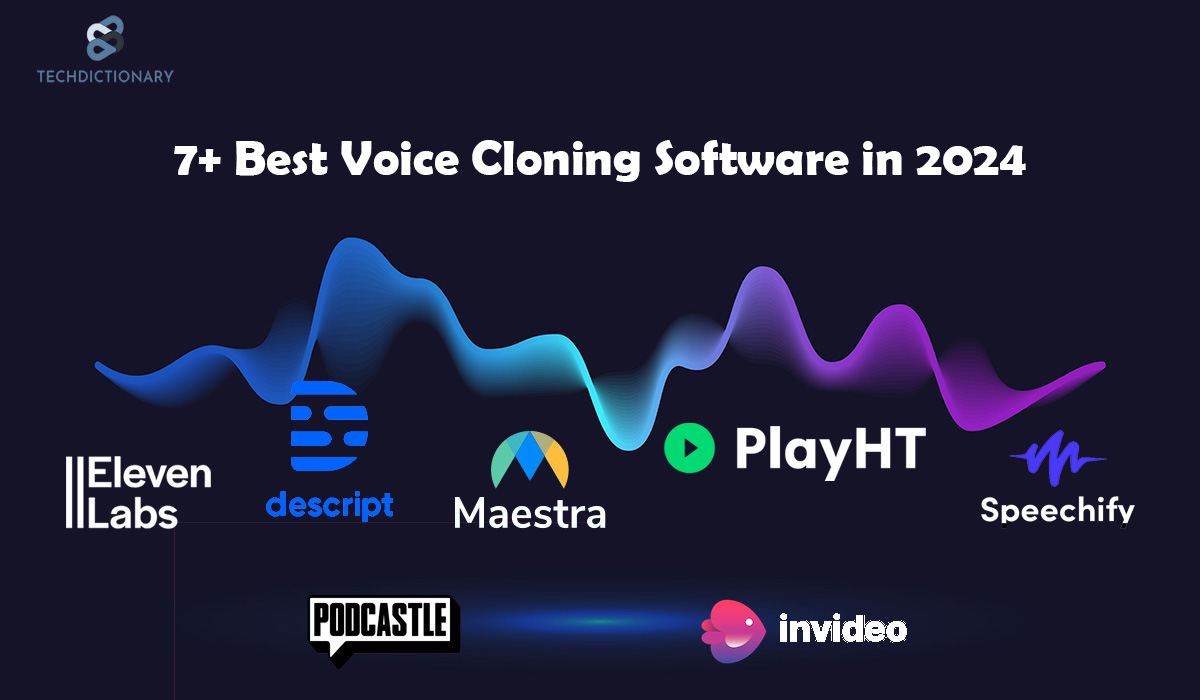
Have you ever wanted to create a digital clone of your voice cloning software? Voice cloning uses artificial intelligence and machine learning to analyze speech patterns and synthesize new audio that matches a targeted speaker with stunning accuracy.
In this article, we will review and compare the top 13 cloning programs currently available so you can find the best voice cloning software yourself. We will evaluate each tool based on key criteria like voice quality, customization depth, supported platform, and overall value.
Here is a feature comparison table for the AI voice cloning tools:
| Feature | Maestra | ElevenLabs | Descript | PlayHT | Podcastle | Invideo AI | Speechify |
| Voice Cloning | Yes | Yes | Yes | Yes | No | No | No |
| Text-to-Speech | Yes | Yes | Yes | Yes | Yes | Yes | Yes |
| Voice Customization | Limited | Extensive | Moderate | Limited | Limited | Limited | Limited |
| Language Support | Limited | Extensive | Moderate | Moderate | Limited | Limited | Limited |
| Audio Editing | No | Limited | Extensive | Limited | Limited | Limited | No |
| Video Editing | No | No | Extensive | No | Yes | Yes | No |
| Pricing Model | Subscription, Pay-as-you-go | Subscription, Pay-as-you-go | Subscription | Pay-as-you-go | Free, Premium | Subscription | Free, Premium |
| Target Audience | Professionals, Enterprises | Content creators, Developers | Content creators, Podcasters | Content creators, Podcasters | Content creators, Podcasters | Video creators | Accessibility, Productivity |
You can create your own AI voice model by following our step-by-step guide using the mentioned tools. Check out our detailed guide on “How to Make an AI Voice Model?” to get started!
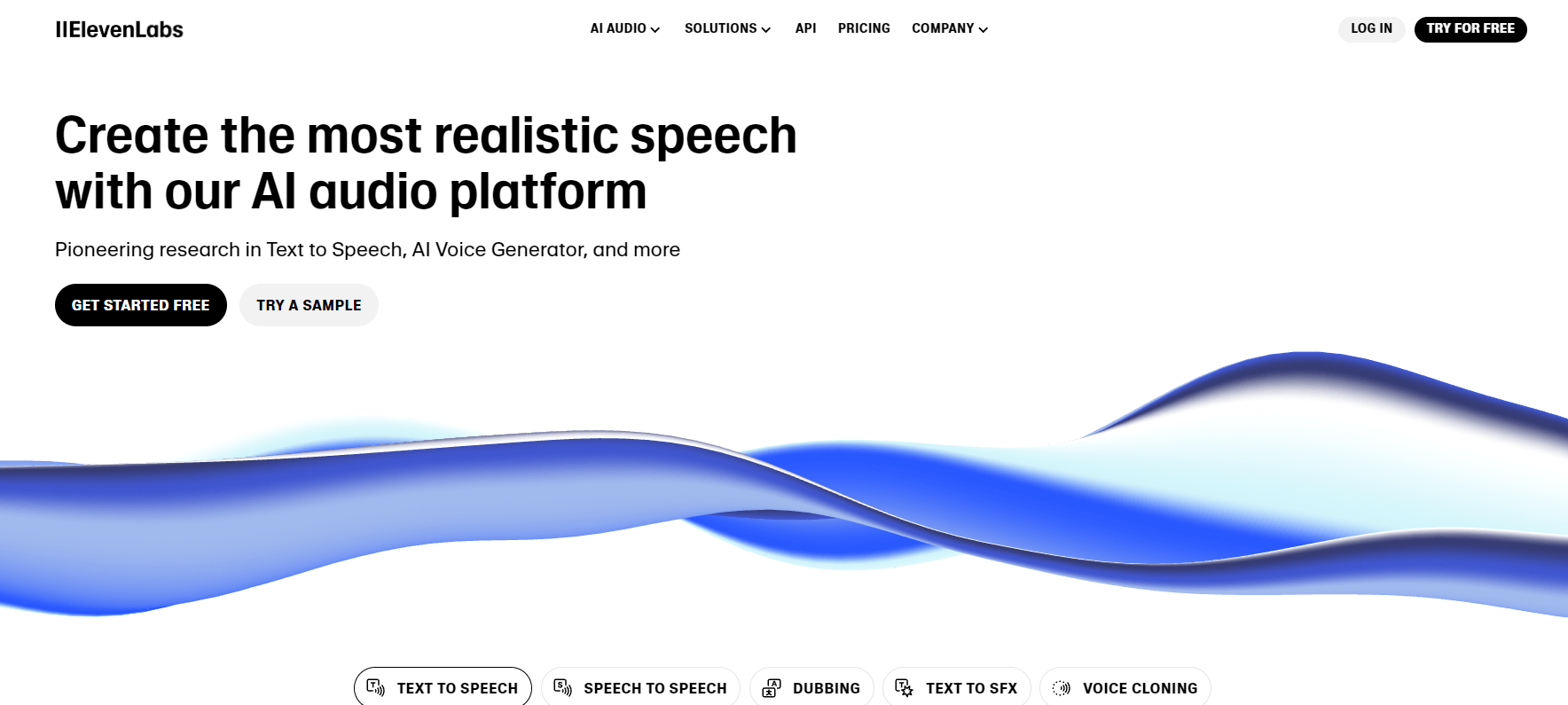
ElevenLabs – #1 Realistic Voice Cloning Website
ElevenLabs, a startup unicorn, is consistently rated as one of the best AI voice cloning tools from 2023 to 2025. Their advanced deep-learning algorithms produce the most natural-sounding synthetic voices that are extremely difficult to distinguish from real human speech. The platform is easy to use and delivers instant results, making it ideal for content creators, voiceover artists, and businesses looking to add an authentic voice touch to their interactions.
Key features:
| PROS | CONS |
| ✔ Utilizes advanced deep learning technology for realistic voice synthesis
✔ Simple settings for adjusting voice stability and clarity ✔ Creates personalized voiceovers that closely mimic the user’s voice |
✘ Struggles with accurately reproducing certain accents and vocal qualities |
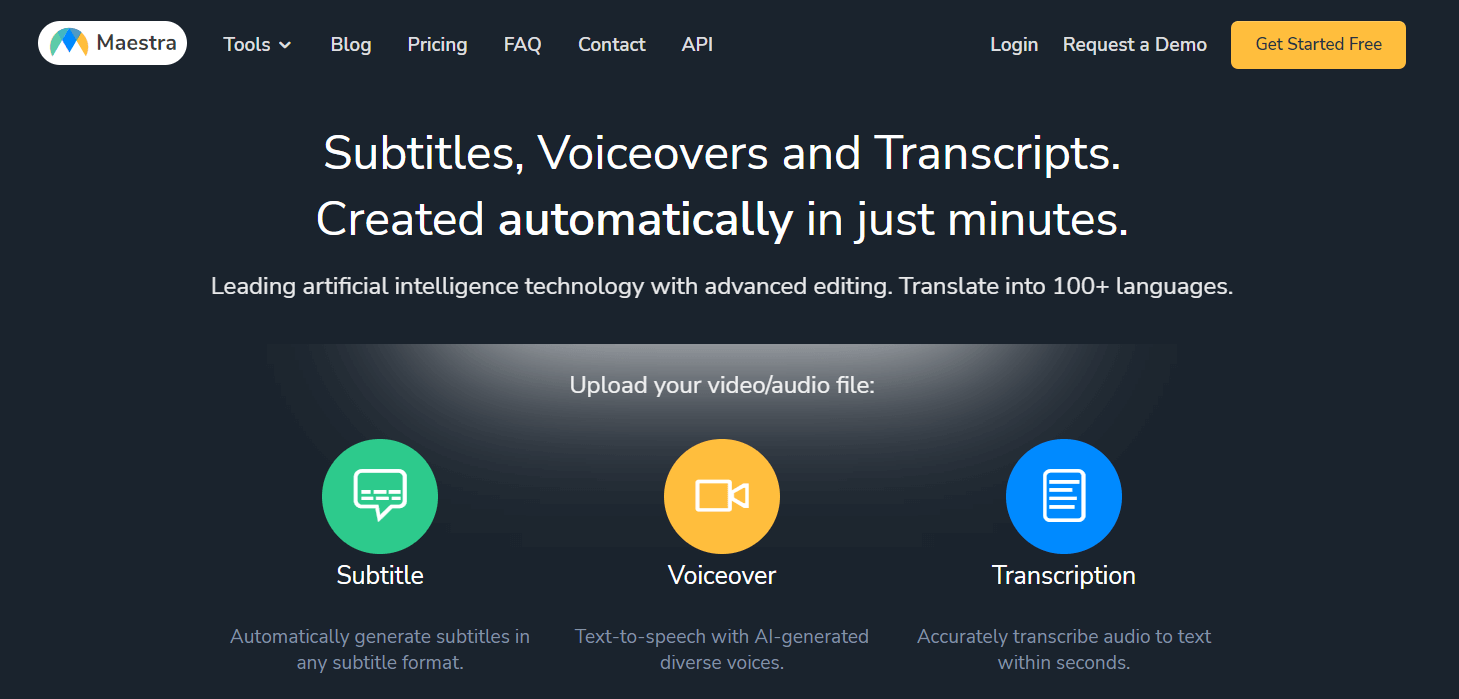
Best Voice Cloning Software Maestra
Maestra’s AI voice cloning is a game-changer for content creators looking to personalize their content, streamline localization, and maintain brand consistency across global markets. By uploading a short audio sample, users can generate highly accurate cloned voices to use in over 125 languages and accents.
Key features:
| PROS | CONS |
| ✔ TAllows users to create unique, personalized voices tailored to their content and audience
✔ Reduces reliance on human actors, improving resource efficiency ✔ Enables automatic translation of content, breaking down cultural barriers |
✘ Require at least 1-2 minutes of audio to clone their voice |
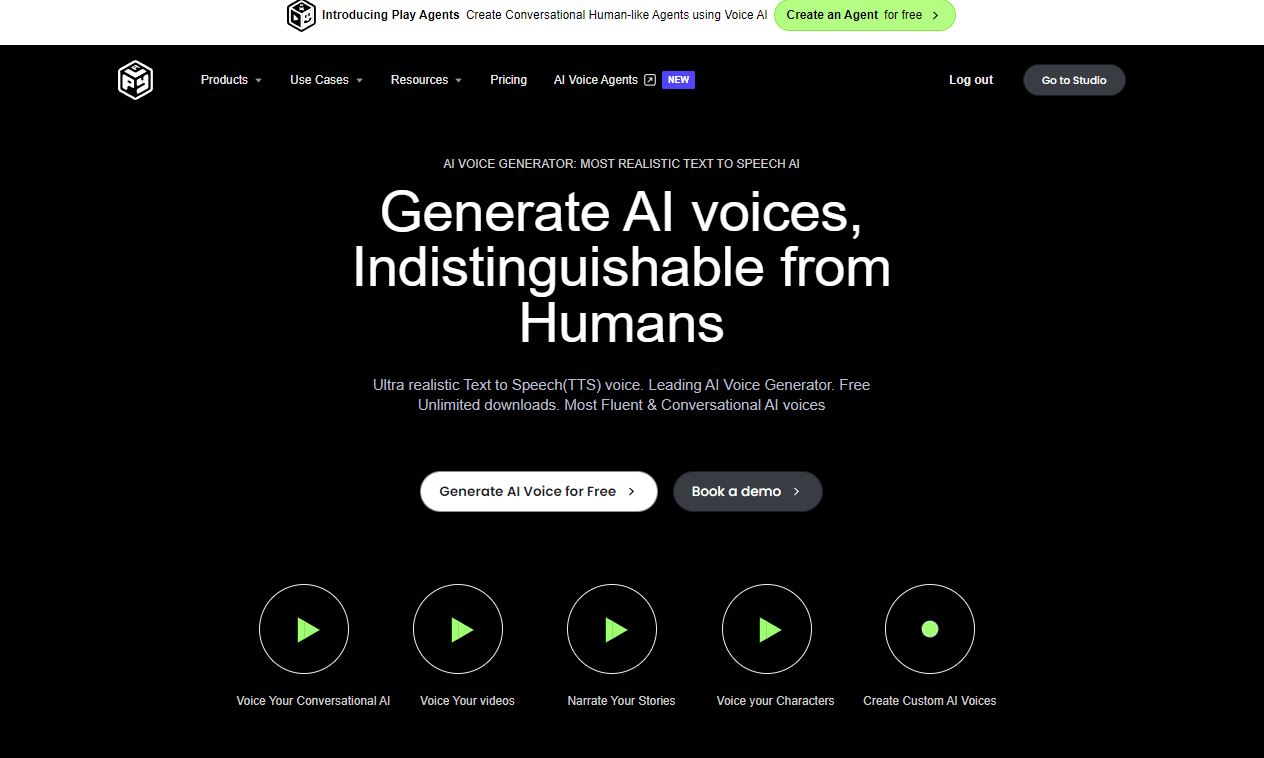
PlayHT – Most Natural-sounding TTS Online Tool
PlayHT offers a robust suite of voice AI tools designed to meet diverse needs. From enhancing marketing videos to making content more accessible, PlayHT’s innovative tools empower users to create engaging and professional-grade audio content effortlessly.
Key features:
| PROS | CONS |
| ✔ A wide range of natural-sounding AI voices
✔ Support text-to-speech conversion, voice cloning, AI pronunciation, and audio widgets, ✔ Offers a generous free plan with access to all voices and languages |
✘ The free version has limitations on voice access and word count |
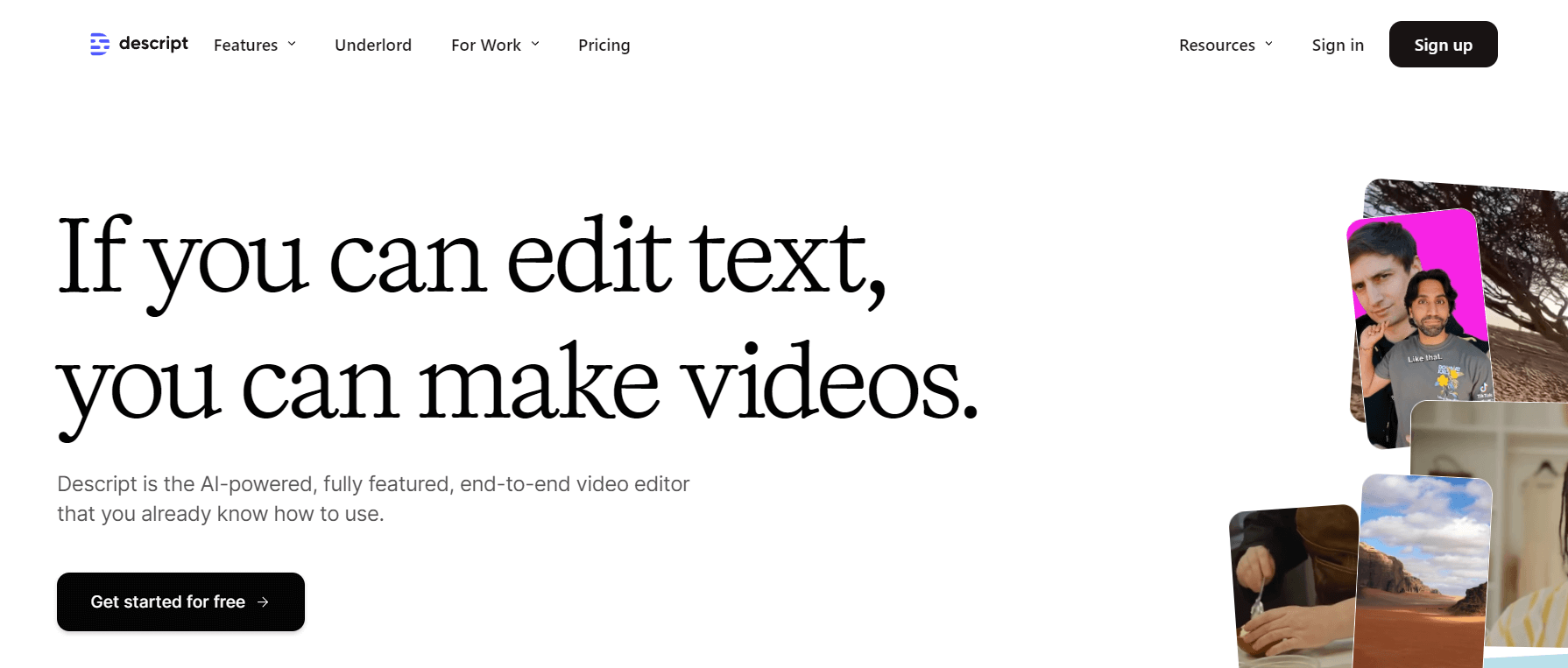
Descript’s AI voice cloning tools provide content creators with an efficient and versatile way to generate, edit, and enhance audio content without the need for repeated recording sessions.
Key features:
| PROS | CONS |
| ✔ Realistic voiceovers and voice cloning
✔ Fast and accurate transcription in multiple languages ✔ Support collaboration, recording in the editor, templates, captions, transitions, and music with seamless integrations with popular tools like Slack and Final Cut Pro |
✘ No mobile app |
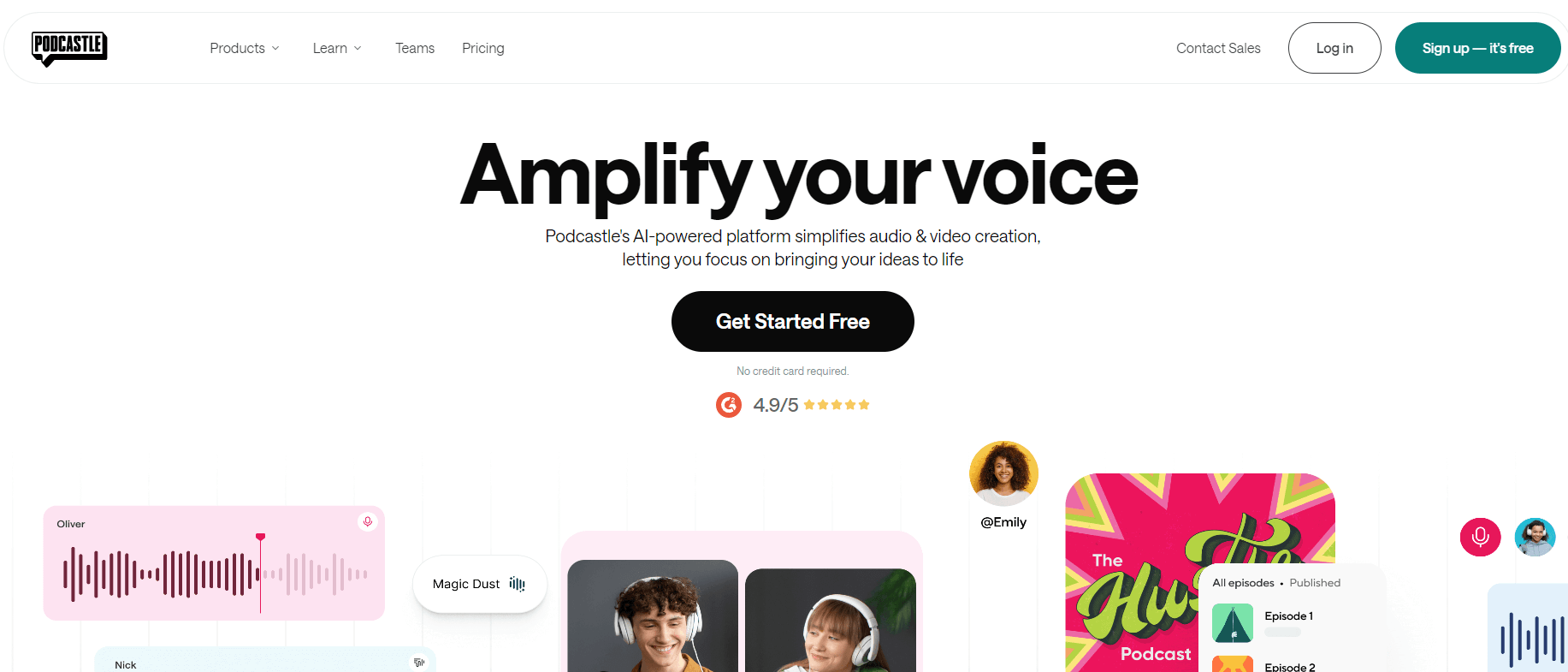
Podcastle’s AI voice cloning technology is revolutionizing the way individuals and businesses approach audio content creation. By providing a user-friendly platform to generate high-quality, customizable voice clones, Podcastle empowers its users to unlock new possibilities in accessibility, podcasting, voiceover work, audiobook production, and character development.
Key features:
| PROS | CONS |
| ✔ Intuitive and user-friendly interface, even for non-technical users
✔ Quick and easy voice cloning process – just record 70 sentences ✔ Offers over 30 customizable AI voice skins with different genders, accents, and pitch options |
✘ Potential limitations on video import size |
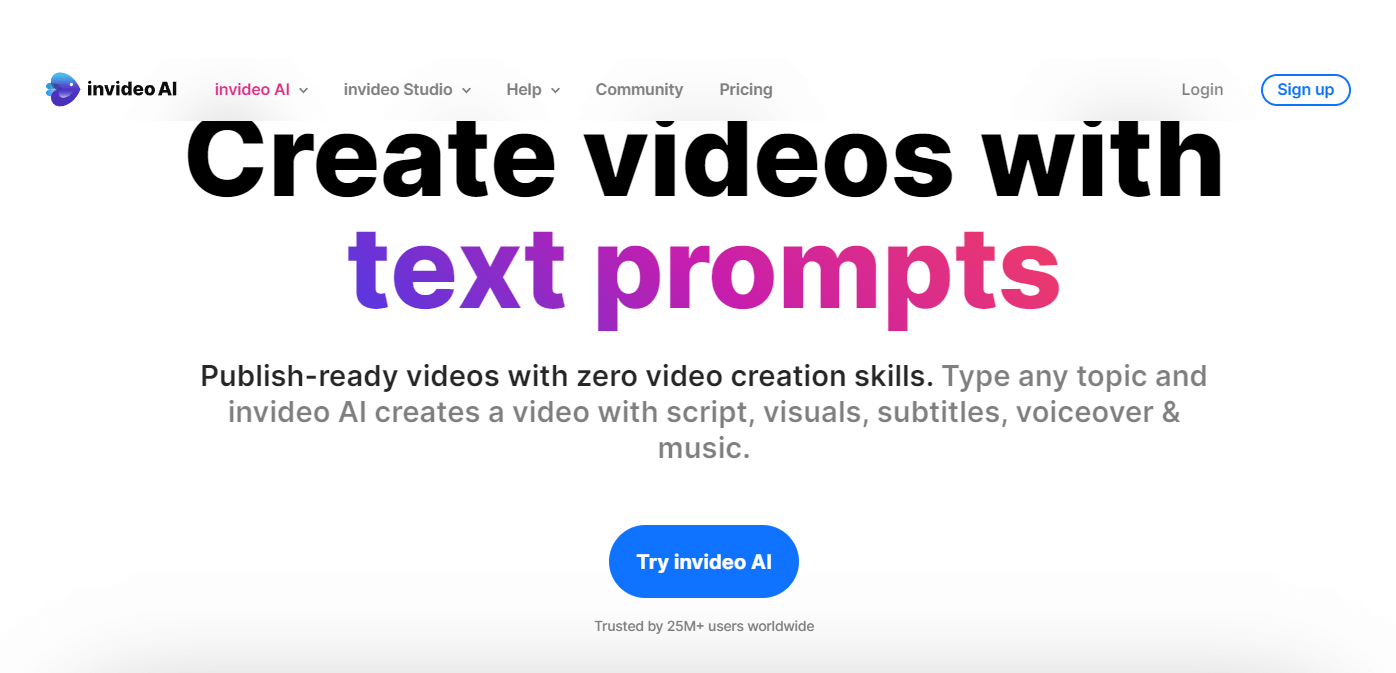
Invideo AI is a powerful AI-powered video creation tool that simplifies the video creation process with features like voice cloning and text-to-video generation. Its versatility makes it suitable for a wide range of applications, from social media content to marketing videos and educational resources.
Key features:
| PROS | CONS |
| ✔ Generates highly realistic digital replicas of voices.
✔ Captures nuanced expressions, enhancing the emotional impact of voiceovers. |
✘ Restrict video import sizes to 400 MB |
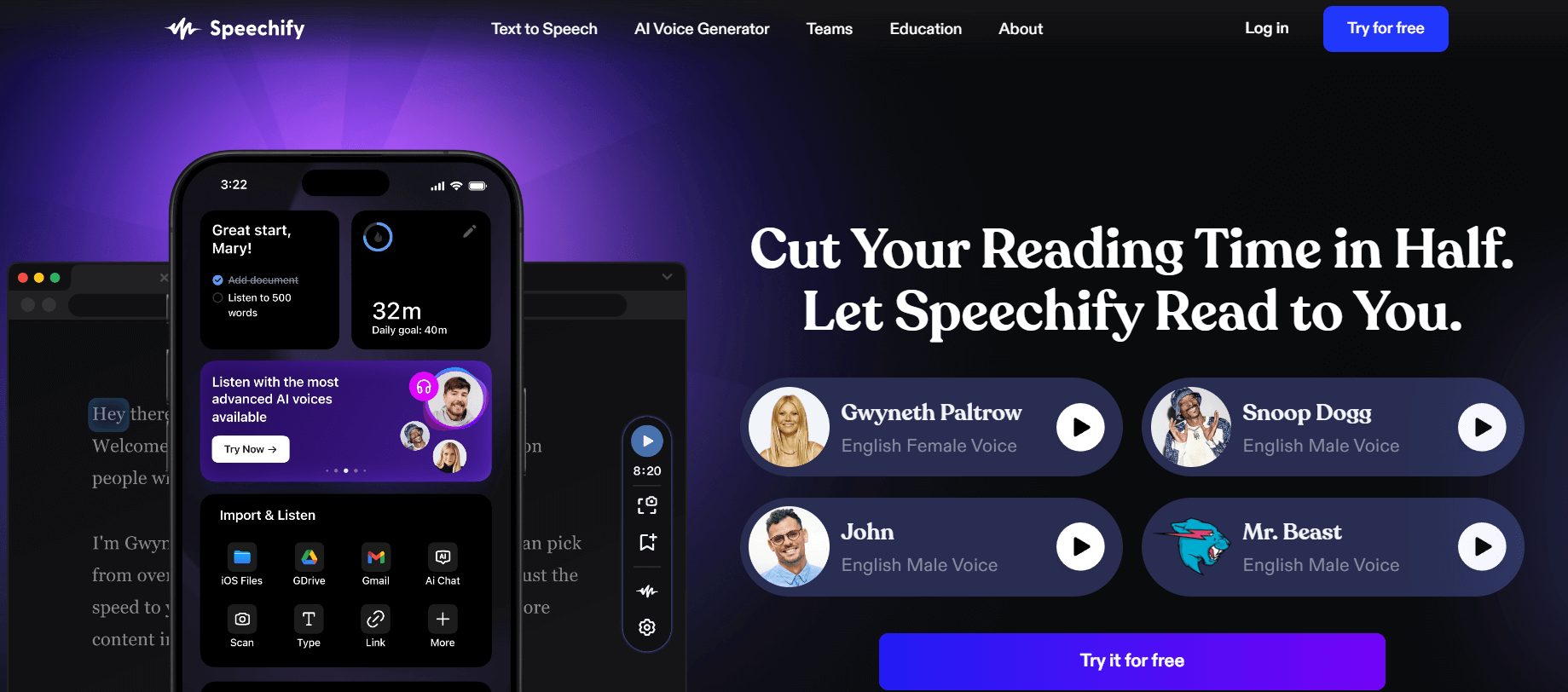
Speechify – The most Famous AI Voice Generator
Speechify is a powerful AI-driven voice cloning tool that allows users to create highly realistic digital replicas of voices. With its wide range of features, multi-language support, and commercial usage options, Speechify is a leading solution in the rapidly evolving field of voice synthesis and cloning.
Key features:
| PROS | CONS |
| ✔ Create high-quality AI clones of human voices in just 30 seconds, with no special equipment required
✔ Supports cloning voices in over 40 languages |
✘ The free trial version has limited functionality and includes a watermark |
Voice cloning uses artificial intelligence to copy a person’s voice perfectly. First, it gathers many audio recordings of the person speaking. This gives the AI data to analyze, like how their voice sounds when they’re happy, angry, or telling stories. Special algorithms then deeply analyze this audio, identifying the speaker’s pitch, rhythm, emphasis, and other details that make their voice unique. This lets the technology create a detailed model of that person’s voice.
With this model, the AI can generate new speech in that person’s voice, even for words they’ve never said before. The synthesized audio is refined to hide any computer-generated traits. The result is an extremely accurate “voice clone” that closely mimics the original voice down to the finest detail.
While useful for applications and games, this ability to copy voices also raises privacy concerns that need to be addressed. With careful use, voice cloning could lead to new experiences while respecting individuals. It’s exciting to see the potential of AI in understanding human speech.
With the many voice cloning tools available these days, finding the best voice cloning software to match your voice uniquely can seem like a challenge. This guide aims to simplify selecting the optimal voice cloning program for your needs by considering key factors in software quality, customization abilities, ease of use, and value.
After evaluating various voice cloning software, we have found that PlayHT, ElevenLabs, and Invideo AI performed the best overall. These platforms provide natural, customizable voice clones without complex workflows or high costs. However, it’s important for you to try and find the best voice cloning software that works for your specific needs.
Voice cloning for non-commercial purposes may be legally permissible, but there are still potential risks. Commercial use, such as impersonation or fraud, is more likely to violate laws around intellectual property and consumer protection.
Yes, you can monetize YouTube videos that use AI-generated voices, as long as the content adheres to YouTube’s policies and does not involve deceptive impersonation or low-quality automation. However, the AI voice should be used responsibly to enhance the video, not replace the creator’s own personality and engagement.

